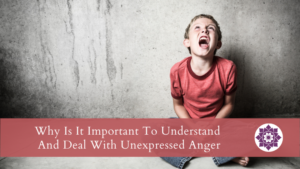We live our lives based on multiple assumptions at all times and at all levels. Assumptions are necessary for us to move forward in life. Some examples are, we assume we will live for at least 80 years and so we plan our retirement fund accordingly. Or we assume we will go to work for the next 12 months, so we plan our wardrobe accordingly. You assumed you would wake up this morning and be here at Soul Sunday.
What we want to examine deeply here are the kind of assumptions we make when it comes to relationships with people and ourselves and situations in our lives. How do the assumptions we make shape our realities – either in a way that is close to reality or takes us in the opposite direction?
When you make an assumption, you tell yourself that something is true without actually having any evidence that it is. It can also be called an unexamined belief: what we think without realising that we think it. Our conclusions are often based on assumptions that we haven’t thought about critically.
Some examples of assumptions are:
- You don’t get the promotion at work, so you assume you aren’t good at your job
- You assume most people are bad at heart, so don’t trust anyone you meet
- Your partner isn’t very talkative of late, so you assume they are angry with you
- You assume big cities are dangerous so decline a great job offer in a city
- Your mother has never understood your choices, so you assume she doesn’t love you
- A friend with two tickets to a movie asks someone else, so you assume the friendship is faltering
When someone does something or you are in any situation like the above, your mind in order to feel safe will start creating assumptions. Then it builds a whole story around it. Now you believe with all your being, that this assumption is the absolute truth, with no room for any change.
You see only what you want to see, and hear only what you want to hear, unless someone comes in and bursts that bubble by pricking it with the pin of truth. At this stage you respond in two ways
- Defend – You fight and go all the way to defend what you believe (your assumption)
- Realise – The earth under your feet gives way, and you have a moment of realisation. The one which feels like you’ve been climbing the wrong wall all along.
Assumptions lead to opinions. Opinions when held long enough lead to judgement. Judgements keep us stuck. We end up setting in stone – what we think of ourselves, think of someone or think of a situation. There is no scope for any change in perspective, because we have locked ourselves in, believing what we feel is the absolute truth. And remember, it all started with an assumption – something you believe to be true, without having any evidence to prove it.
Judgements are rigid and stagnant thoughts we carry about ourselves, people around us and situations, which do not allow life to flow through us and we are unable to move forward.
– Sidra Jafri
So Why Is It That We Make Assumptions?
Navigation – Assumptions are a shortcut for us to navigate the world we live in. They help us process the world efficiently by drawing on past experiences to find patterns and use them in new situations. This helps you avoid analysing each situation from scratch and saves you a lot of mental energy.
Eg., What you wore to work or a party last week can be used for future work and party occasions, right? You don’t need to rethink it again. Imagine how many lesser decisions you make, as a result of relying on past experiences and using them to make today’s decisions.
Safety from fear – The human mind is an answer seeking machine. It feels safe when it finds answers to its many questions. Answers make us feel safe and keep away the fear of embarrassment of not knowing, the fear of being judged for who we are and sometimes just covering up for our lack of courage to own up and say we don’t know, or ask for clarity.
Assumption is the foundation upon which we build an entire ecosystem of interpreting the world we live in, the relationships we experience with others and with ourselves. It’s like picking the first piece in a jigsaw puzzle and piecing all the other pieces using the first piece as your guide.
What Are The Fall Outs Of Making Assumptions?
Assumptions start causing problems when we believe our way of interpreting a given situation is the only way to interpret that situation. It is like living a life with blinkers on – having a limited understanding of anything and thinking that is all there is to know and learn. It is when we automatically tend to assume the following.
- The way I see something is the way it is.
- The way I feel about someone is the way he or she is.
- The way I remember an event is the way it was.
- If you disagree with me, you are stupid, a liar, or psychotic (disconnected from reality).
Fall Outs In Assumptions Can Cause
- Disharmony in relationships – you expect the other person to know what you want, how you feel, what you expect. If they don’t – then it means they don’t care for you.
- Lack of self belief – you assume beforehand what you are capable of and what you are not – saying I know myself well. Setting limits on your growth.
- Overthinking – Oscillating between i / they could, should and would and imagining and reimagining it in your mind over and over again.
- Waste of time – Hours, days, weeks, months and a lifetime – lived making assumptions, all in the wrong direction
How many times do we find ourselves experiencing this with others and catch ourselves doing this very same thing to people and situations in our lives?
What Is The Way Out?
To help ourselves avoid making problematic assumptions, we can get deeply, genuinely curious about the situation or person we’re encountering. We can ask ourselves questions like:
- What might be going on for the other person?
- How might they be seeing things?
- What else could be true?
Simply asking questions like these helps us stay open to the possibility that our truth isn’t the only truth. With this openness, we automatically believe:
- The way I see something is one way of seeing.
- The way I feel about someone is the way I feel.
- The way I remember an event is my memory of that event.
How to let go of making assumptions
- Become aware – observe what you think, say and do – and ask if it is based on truth or on your assumptions.
- Embrace acceptance – Know that you are only making an assumption and it does not mean that is the truth. Be open to accept the truth when it reveals itself.
- Stay humble – When the truth lands on you, stop yourself from blaming and carrying guilt. Instead, stay open and move forward.
- Ask questions – Make it a habit to ask questions to gain clarity, so you can replace your assumptions with reality.
Make a note of at least one such situation in your life where your assumptions got you stuck in the wrong judgement of people and situations. Notice what emotions you felt, write them down. We’ll address them in the clearing process.
Some common emotions we feel are guilt and embarrassment, even frustrated about how you could have made such a non serving assumption, you end up judging yourself and passing the verdict too. How could I, I should have, I would have and so on.
Sidra says – The problem with making assumptions is that it is always a or one truth, not the absolute truth. Embrace others’ perspectives to keep broadening your horizon so you don’t not get stuck.
Unlearning assumptions can be a challenging but worthwhile process. Here are a few steps you can take to start unlearning your assumptions:
- Recognize and acknowledge your assumptions: The first step is to become aware of the assumptions you are making. Notice when you are making assumptions and what those assumptions are.
- Challenge your assumptions: Once you have identified your assumptions, question them. Are they based on evidence, or are they based on stereotypes, biases, or past experiences? Consider other perspectives and try to see the situation from a different point of view.
- Seek out diverse perspectives: Engage with people who have different backgrounds, experiences, and perspectives. This can help you broaden your understanding and challenge your assumptions.
- Practice empathy: Try to put yourself in someone else’s shoes and understand their perspective. This can help you to see beyond your assumptions and recognize the complexity of the situation.
- Stay open-minded: Finally, be willing to revise your assumptions when new information becomes available. Embrace the process of learning and growing, and be open to changing your perspective as you gain new insights and experiences.
How can you leverage the power of making assumptions
Since the mind will make assumptions anyway, can you choose to opt for a benign assumption – that is always give benefit of doubt and tell yourself you may not have all the facts to make the right assumption, and you will never know what’s going on in the other person’s life or his mind. Nothing is the absolute truth, there are always two truths or more.
This way you keep your mind calm, you don’t overthink and you don’t engage in building stories which you may end up defending later. It will also create so much time and abundant space in your mind to do more productive things. It will automatically open gateways of good vibes going from you to the situation or to the other person, which will only help them on their journey.
Sidra says
Instead of seeking power over others by proving yourself right, seek to understand their perspective. This will allow you to become more flexible and will make change easy. The best way to get off the judgemental roller coaster is to keep your opinions fluid and change according to the level of your awareness.
Listen to this guided meditation to help you on your journey of unlearning your assumptions. Click here




